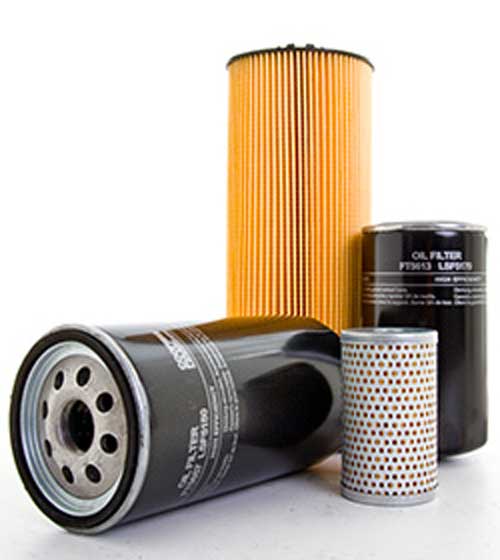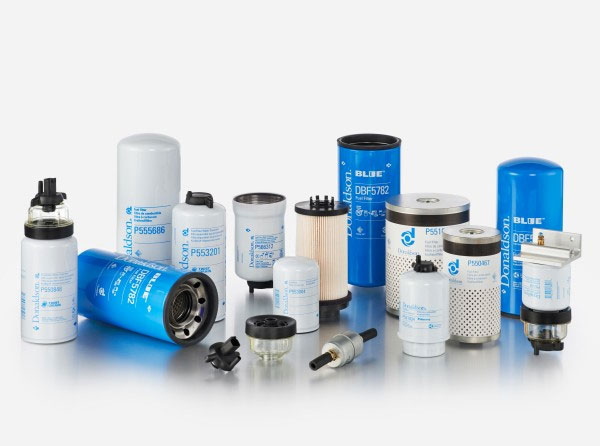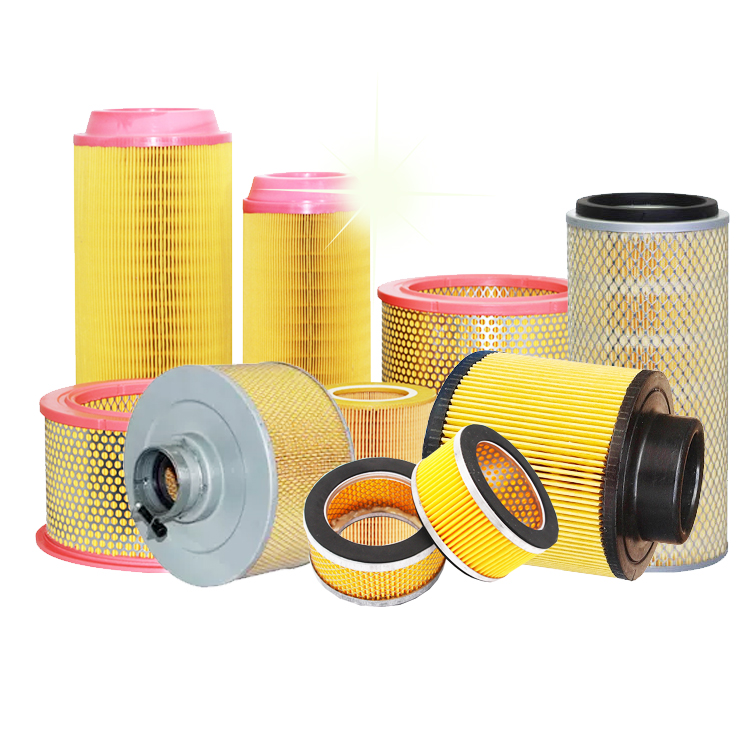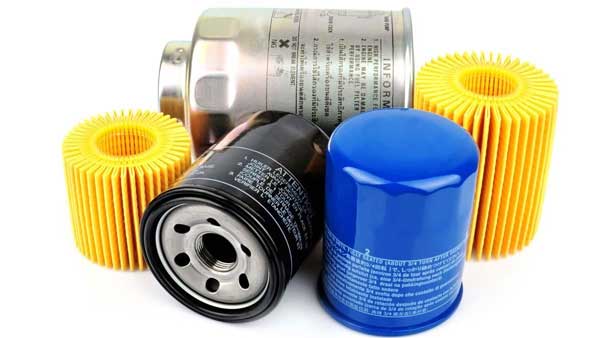In the journey of powering your vehicle, the engine plays a heroic role. As the heart of the automobile, it pumps energy, keeping your machine alive and dynamic. But just as our hearts need to be maintained healthy through lifestyle decisions, your engine, too, relies on a critical component for its longevity – the engine filters. Here we present a comprehensive analysis of the essential trio of engine filters - the oil filter, fuel filter, and air filter, by LEFILTER, your reliable partner in efficient engine operation.
LEFILTER, the flagship brand that sets a benchmark in filter technology, has earned accolades through its ISO9001, ISO/TS16949 international quality management systems, and ISO14001 international environmental management systems certifications. Catering to an immense range of vehicles and machinery, the prime products include air filters, air conditioner filters, oil filters, and fuel filters.
The Oil Filter: Your Insurance Against Engine Damage

To address the high-performance demands of modern engines, manufacturers insist on top-tier engine components. A critical focus is the cleanliness of oil, dictating the engine's stable performance. Impurities and combustion residues, when left unchecked, contribute to significant wear and, in extreme cases, complete engine breakdown.
LEFILTER's superior oil filter, crafted using exceptional glass fiber filter material, ensures an unimpeded oil circuit, directly translating to higher performance and lower fuel consumption, guaranteeing the lasting, stable performance of your engine.
The Fuel Filter: Safekeeping the Heart of Your Vehicle

High-performance fuel injection systems place an unprecedented emphasis on fuel quality and purity. Dust particles or moisture in the fuel can profoundly degrade the engine performance. However, LEFILTER's fuel filters guarantee the safeguarding of your engine from such adversities.
These fuel filters are geared for the demanding requirements of sensitive injection systems and alternative fuels such as biodiesel. Now, you can bid farewell to concerns about dirty particles in your fuel with our filter media which defends the system from wear, corrosion and promotes engine stability while minimizing maintenance expenses.
The Air Filter: The Quiet Guardian of Engine Performance

Clean intake air is paramount for efficient operation of the internal combustion engines. The intrusion of airborne contaminants such as soot or dust can lead to pitting corrosion on the cylinder head, triggering premature engine wear.
The stellar air filter by LEFILTER, made from imported glass fiber, proficiently filters diversified particulate matters encountered during road traversals. Dust, pollen, sand, carbon black, or water droplets face a formidable barrier, ensuring a thorough fuel burn and stable engine operation.
However, filter blockages can impede engine intake, resulting in inefficient fuel combustion, and wastage. Therefore, to safeguard your engine's performance, a regular check on the air filter is indispensable.
In the final analysis, these LEFILTER products are not just product selections; they are services to protect your engine and make it more dependable. Efficient engine operation requires dedicated care and superior-quality components. With you in every mile of your journey, LEFILTER ensures the heart of your vehicle continues beating strong, reaffirming the essence of the saying, "A healthy engine is a happy journey."
In the arena of robust engine performance, do not settle. Choose LEFILTER as your reliable partner in high efficiency and enduring engine operation. Trust LEFILTER, not only to drive, but to drive with assurance and longevity.
The oil filter plays a crucial role in maintaining an unperturbed oil circuit to reduce fuel consumption. Its primary function is to filter out harmful debris, dirt, and contaminants from the oil that circulates through the engine.
Without this filter, these impurities could create friction, leading to increased wear and tear on the various engine parts. This friction, in turn, forces the engine to work harder to overcome resistance, hence necessitating more fuel for operation.
With a high-quality oil filter like the one provided by LEFILTER, the oil maintains its cleanliness and optimal flow. This means all the internal parts are adequately lubricated, leading to smoother movement. As a result, the engine does not have to strain in overcoming resistance caused by friction, leading to a significant reduction in fuel usage.
Furthermore, regular replacement of the oil filter can help maintain this efficient flow in the long term, thus continually aiding in lower fuel consumption. Therefore, the oil filter's role in maintaining an unperturbed oil circuit directly contributes to optimal fuel efficiency and overall engine performance.
Neglecting to regularly replace the oil filter can lead to numerous issues that negatively impact engine performance and efficiency, as well as potentially lead to costly repairs. Here's what can happen if the oil filter is not changed in a timely manner:
Clogged Filter: Over time, the oil filter can become clogged with the impurities it has filtered out from the engine oil. A clogged filter is unable to perform its function effectively, meaning dirty oil containing abrasive particles might circulate through the engine.
Increased Wear and Tear: Unfiltered or poorly filtered oil can contain harmful debris and contaminants. If these are allowed to flow through the engine, they can accelerate the wear and tear on sensitive engine components, leading to decreased performance and potentially premature failure.
Decreased Engine Efficiency: When the oil filter is clogged, the flow of oil can be severely restricted. This can put additional stress on the engine as it has to work harder to pump oil. This additional strain decreases overall engine efficiency and can lead to increased fuel consumption.
Engine Damage: In the worst-case scenario, if the oil filter is so clogged that oil flow is obstructed, the engine could become starved of oil. This can result in serious engine damage since oil is necessary to lubricate internal engine parts and prevent overheating.
Increased Expenses: Any of the above issues will lead to more frequent repairs and higher costs in the long run. Regular oil changes are an economical way to keep your vehicle running properly and to avoid potentially expensive engine repairs.
Hence, it's always recommended to replace the oil filter routinely, according to your vehicle manufacturer's instructions, as it's a small investment that can lead to significant benefits in terms of the longevity and efficiency of your engine.
If your oil filter is clogged, the following symptoms may start to manifest, indicating that it may be time for a change:
Poor Performance: If the vehicle's performance is not as responsive or efficient as usual, it could be a sign of a clogged oil filter. Reduced acceleration or power can often result from inadequate oil flow.
Increased Engine Noise: When the oil filter is clogged, it can restrict the flow of oil. The insufficient amount of oil can lead to increased friction between engine parts, causing louder than usual engine noise.
Dirty Exhaust: If you notice a darker or dirtier exhaust coming from your vehicle, it could be a sign of a clogged oil filter. This is typically caused by dirty, unfiltered oil entering and burning in the engine.
Oil Pressure Light: The oil pressure warning light on your dashboard could indicate that your oil filter is clogged. The absence of oil circulating can cause the oil pressure to drop, which will trigger the warning light.
Decreased Oil Pressure: If your vehicle’s oil pressure gauge indicates a drop in oil pressure, the oil filter may be to blame. The clogged filter can block the flow of oil, diminishing pressure.
Overheating Engine: If your engine temperature gauge indicates increased or excessive heat, it could suggest that your oil filter is clogged or dirty. This happens because the lack of sufficient oil causes friction and heat within the engine.
Please note that if you see any of these signs, it is essential to get your vehicle checked by a professional to avoid long-term damage to the engine. It's also crucial to remember that regular vehicle maintenance, including routine oil and filter change, is the best way to prevent these issues.
The oil filter in a vehicle plays a pivotal role in prolonging the lifespan of the engine and ensuring its optimal performance. Below are its primary functions:
Removes Impurities: The main purpose of an oil filter is to remove any dirt, metal shavings, and other impurities that have accumulated in the oil. These contaminants can be damaging to the engine's components, which could lead to premature wear and tear if not filtered out.
Improves Engine Performance: By keeping the oil clean, the oil filter ensures that every part of the engine gets a smooth flow of oil. This leads to better lubrication, thereby reducing friction and enabling smooth and efficient engine operation.
Extends Engine Lifespan: Uneven wear and tear, as well as heat stress due to poor lubrication, can reduce the life of an engine. An oil filter reduces these risks by ensuring only clean oil circulates within the system, thus extending the engine's lifespan.
Prevents Oil Leaks: Some oil filters come with anti-drain back valves that prevent oil from draining back into the filter when the engine is turned off. This helps maintain oil pressure when the engine is started again, ensuring immediate lubrication of engine components and preventing oil leaks.
Enhances Fuel Efficiency: Clean oil reduces friction between engine parts. This allows the engine to run more efficiently leading to better fuel efficiency.
Overall, an oil filter is a vital component that maintains the health of an engine and thus the vehicle. Regularly getting the oil filter changed as per the manufacturer's recommendation ensures that your engine performs optimally and lasts longer
Most manufacturers recommend changing the oil filter every time you change the oil in your vehicle. As for the oil change, it depends on several factors, including the make and model of your vehicle, the type of oil that you use, your driving habits, and the conditions in which you drive.
For newer vehicles that use synthetic oil, an oil change is usually recommended every 7,500 to 10,000 miles, or at least once a year if you don't reach these mileage intervals. But for older cars that use conventional oil, it's often recommended every 3,000 to 5,000 miles.
However, it's always best to follow the specific recommendations outlined in your vehicle's owner's manual since these guidelines are tailor-made for your specific make, model, and year. Keep in mind that in harsh driving conditions, you may need to have the oil and the filter changed more frequently.
The type of motor oil that your vehicle requires for optimal performance is usually determined by several factors, including the manufacturer's recommendations, vehicle's age, driving conditions, and personal preference. Here's how you can determine if your vehicle requires synthetic or conventional oil:
Manufacturer's Recommendations: This is the most reliable source of information. Check your owner's manual or consult with your dealer. Many newer cars explicitly require synthetic oil, so make sure to adhere to the manufacturer's guidelines.
Vehicle's Age: Newer models and high-performance vehicles often require or benefit more from synthetic oil due to its superior characteristics such as better protection over a wider range of temperatures, improved fuel economy, and longer change intervals.
Driving Conditions: Synthetic oil is better suited for harsh conditions, such as more extreme temperatures (both hot and cold), heavy hauling or towing, frequent short journeys, high RPMs, or if the vehicle is used in a dusty environment. It handles these conditions better because it's designed to resist breakdown and remains fluid at extreme temperatures.
Mileage: High-mileage vehicles might benefit from a specialized oil. As engines wear, gaps between components can form — and tiny holes in gaskets can appear. Some high-mileage oils contain conditioners and additives to swell seals, fill gaps, and reduce oil consumption.
Personal Preference: Some drivers prefer synthetic oil even though their vehicle does not require it because of the potential benefits, such as more extended intervals between oil changes and potentially better engine protection over time.
Remember, the correct oil is crucial for engine longevity and efficiency, whether it be conventional, synthetic, or a semi-synthetic blend. If you're in doubt, always refer back to the vehicle's manual or a professional mechanic for advice.










